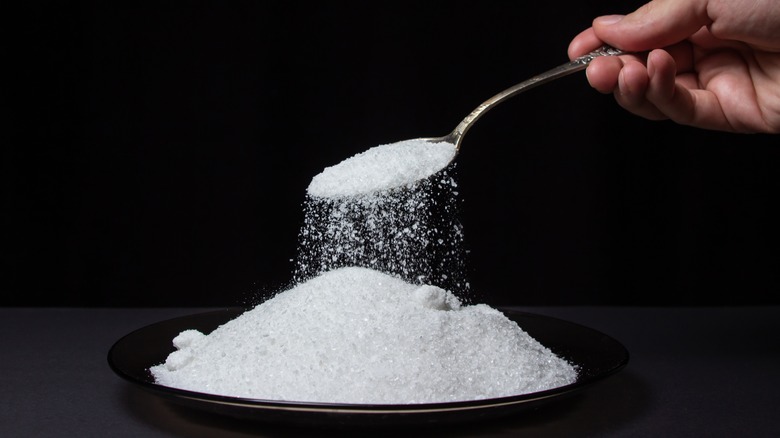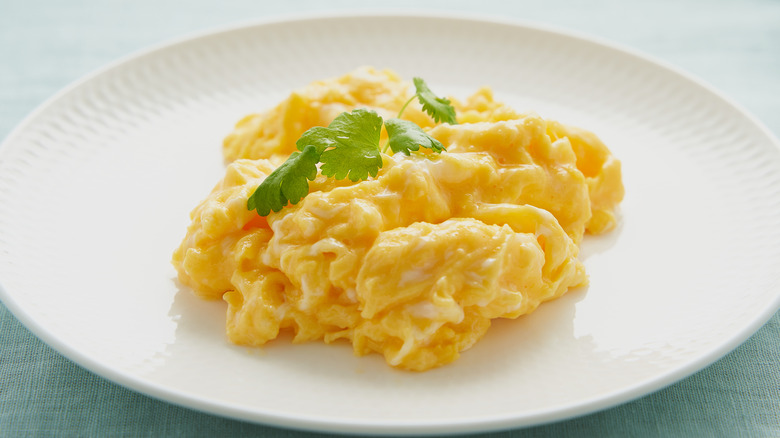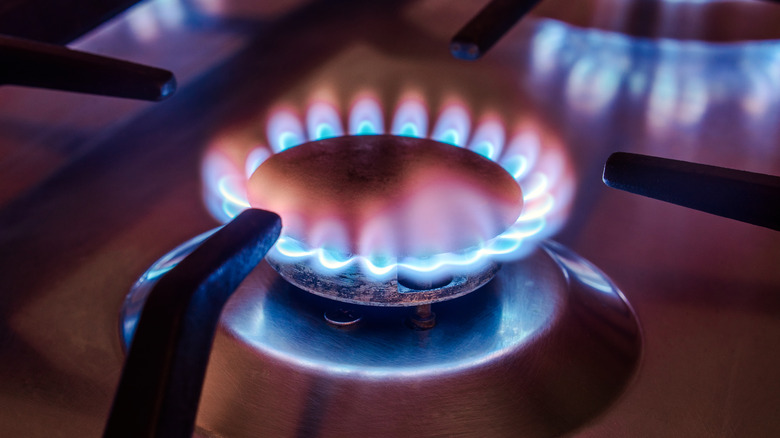What Pre-Salting Really Does To Your Scrambled Eggs
There's a seemingly infinite number of ways to make scrambled eggs. Sure, it seems simple enough. Take the eggs, whack them on something, mix, fold, and fluff them, and chuck them in a pan. But that's just the beginning. There's Instant Pot eggs, microwave eggs, and some with baking powder. Watch the talented Sohla El-Waylly whip up an omelet on YouTube, and you might realize you've been making eggs wrong your whole life.
In these infinite incarnations of the incredible, versatile egg, one trick many chefs recommend is pre-salting. While this might not seem like a major issue, consider that all cooking is a chemical reaction done in searing real-time. Introduce a chemical component at the wrong time, and you could end up with bread that rise because you killed the yeast with salt.
Salt can do a lot of damage to a recipe in a short span of time. Adding salt to those simple, scrambled eggs can change them, so it's important to do so at the right time.
Pre-salting makes for fluffy scrambled eggs
If you've heard that salting eggs will make them tougher, you're not alone. But Serious Eats put that theory to the test, and it's not exactly accurate.
According to Harold McGee's book "On Food and Cooking: The Science and Lore of the Kitchen" (via Serious Eats), when you cook an egg, the proteins in the whites bond together. (That's why they turn from translucent to white.) Salt does have the ability to make the proteins found in egg whites bond together at a lower temperature, which Healthfully says is a way to "cook" the egg chemically.
MyRecipes explains that while pre-salting scrambled eggs causes the proteins to bond together more easily, it also keep them slightly separated. This tends to make the eggs fluffier and creamier, according to MyRecipes' experiments. Serious Eats had similar findings. In both cases, pre-salting was suggested, if not outright recommended.
Pre-salted or not, keep the heat low on your scrambled eggs
Whether or not you pre-salt your eggs, there are a number of other things that can go wrong with your essential egg cooking process. For instance, Men's Health says to keep the heat low when cooking scrambled eggs. While salting shouldn't make your eggs tough, searing them almost certainly will.
Cooking at a lower temperature is especially important if you do pre-salt your eggs. While the salt helps keep the proteins apart, it's also slightly bonding them as part of the chemical "cooking" process mentioned before. That means the proteins should get together quickly and easily. Livestrong points out that more heat ends up breaking down proteins, which isn't likely to give you a fluffy scramble. It's more apt to become a charred mess.
Those who don't pre-salt also should keep the temperature down — without salt in the mix, those proteins aren't going to get the extra separation the salt provides, explains MyRecipes. Therefore, the protein bonds are likely to be naturally tighter, and are more inclined to squeeze out moisture, making the eggs harder should they get overheated. Salt or not, turning up the heat is a no-win scenario.


